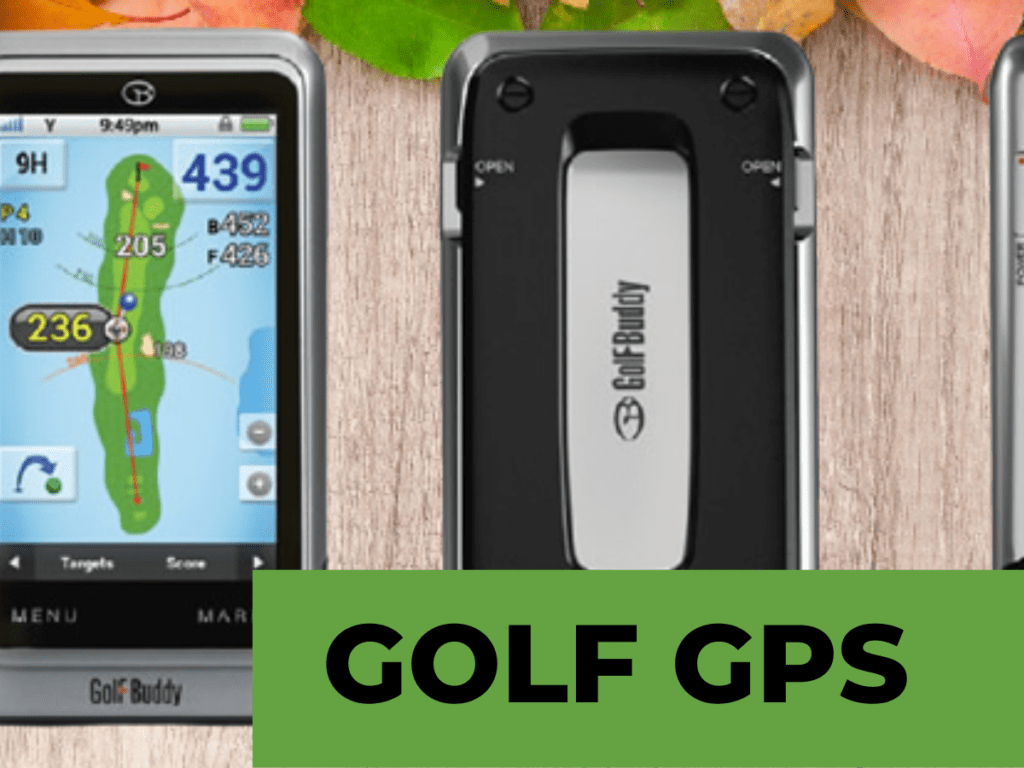Golf GPS systems are devices and apps designed to provide golfers with accurate yardage information and enhance course management and performance. GPS stands for Global Positioning System, which uses satellites orbiting the Earth to determine the precise location of a receiving device. By utilizing GPS technology, golf GPS systems can tell you the exact yardage to any point on a golf course.
How Golf GPS Systems Work
Golf GPS systems determine your location on the course and calculate yardages using three key components working together:
GPS Satellites
| Function | Details |
|---|---|
| Orbit planet & send signals | – 31 operational satellites 20,000 km above Earth <br>- Signals contain time/position data |
| Communicate with GPS device | – Device picks up signals from multiple satellites |
Golf GPS Device
| Role | Description |
|---|---|
| Receive satellite signals | – Built-in GPS chip reads satellite data |
| Determine location | – Triangulates position based on satellite info |
| Calculate yardages | – Combines location with course map data |
| Display information | – Shows yardages, hole maps, etc. on screen |
Golf Course Maps
| Details | Importance |
|---|---|
| Preloaded into device memory | – Map data enables yardage calculations |
| Detail greens, hazards, targets | – Provides layout/context for yardage info |
| Created using aerial flyovers | – Highly accurate maps ensure reliable yardages |
By combining these three elements – satellites, GPS device, and course maps – golf GPS systems can deliver precise yardage information tailored to the course being played. This allows you to make better informed decisions on the course.
Types of Golf GPS Systems
There are three main types of golf GPS systems available today: handheld devices, wristwatch devices, and smartphone apps.
Handheld devices
Dedicated handheld GPS devices are standalone touchscreen units designed specifically for golf. They are compact, lightweight and easy to use while playing. Many feature large, high-contrast displays for easy viewing in sunlight.
Wristwatch devices
Golf GPS wristwatches combine the convenience of a watch with GPS yardage capabilities. They are worn on the wrist and provide distances right on the screen. Some also track shots, speed of play and can receive smart notifications.
Smartphone apps
Many excellent golf GPS apps are available for download on smartphones. Using the phone’s built-in GPS, these apps can deliver yardages without the need for an additional device. However, battery life can be a concern when using a phone GPS for a full round.
Key Features of Golf GPS Systems

The most important features and information provided by golf GPS systems include:
Yardage information
The core function of any golf GPS is providing accurate yardage from your current location to key targets, including:
Front/center/back of green – The most basic yardages are to the front, middle and back of the green. This allows you to select the proper club for your approach shot.
Layup distances – Many GPS devices provide layup yardages to common landing areas on par 4s and 5s. This helps you hit an ideal layup shot.
Dogleg distances – On doglegs, you can see the yardage to reach the corner or end of the turn. This allows you to cut off as much distance as possible.
Course maps
Full color course maps let you view the full layout hole by hole. You can pan and zoom to examine hazards, landing areas, greens, etc.
Scoring and statistics
Many golf GPS models allow you to input your scores on each hole and track fairways hit, greens in regulation, putts and other stats.
How to Use Golf GPS
To use a golf GPS, follow these steps:
- Turn on your GPS device. This may be a dedicated GPS device, a smartphone app, or a golf watch.
- Select the golf course you are playing. Most GPS devices will have a database of golf courses from around the world.
- Locate your position on the course. Your GPS device will use GPS satellites to determine your current location.
- View the distance to the green. The GPS device will display the distance to the front, middle, and back of the green.
- Use the GPS device to plan your shot. Consider the distance to the green, the wind conditions, and any hazards in your way.
- Hit your shot and see how close you get!
Here are some additional tips for using a golf GPS:
- Make sure your GPS device has a full charge before you start your round.
- If you are using a smartphone app, make sure to enable location services.
- Be aware of your surroundings and avoid using your GPS device while walking or driving.
- Use the GPS device to track your progress and identify areas where you can improve.
- Have fun and enjoy your round!
Benefits of Using a Golf GPS
Using a golf GPS system provides many advantages that can improve your course management, lower scores, and make your round more enjoyable:
- Precise Yardages – Stop guessing yardages and have precise measurements to any target on each hole. This leads to selecting the right club more often.
- Faster Play – Spend less time pacing off yardages and speed up play. Golf GPS users play rounds up to 15% faster.
- Course Knowledge – Get a hole-by-hole overview and identify landing zones, trouble spots, etc. before playing each hole.
- Smart Distances – In addition to basic yardages, get layup distances, dogleg shortcuts, hazard carry distances, and more.
- Confidence – Be 100% confident you have the right yardage for each shot with a golf GPS in hand.
- Scoring – Lower scores by consistently getting the yardages right and making better strategic decisions.
- Convenience – Golf GPS provides yardages at a glance versus walking to markers or hazards to check distances.
- Data Tracking – Many GPS models allow tracking fairways, greens, putts and more to analyze your stats after each round.
- Stress Reduction – Let the GPS handle the yardage work so you can focus on your targets and swing.
With all these benefits, it’s no wonder over 50% of golfers now use a GPS system to improve their game!
Factors to Consider When Buying a Golf GPS
If you’re looking to buy a golf GPS system, here are some key factors to consider:
Ease of use
Look for simple, intuitive interfaces that allow you to get yardages with minimal button presses or screen taps.
Course availability
Make sure the GPS has the courses you want preloaded and/or allows course map uploads.
Battery life
Look for long battery life (12+ hours) to last multiple rounds.
Screen visibility
Opt for high-contrast, sunlight readable screens for easy viewing outdoors.
Price
Golf GPS features and prices range from $100 to over $400. Set a budget and look for value.
Additional things you should also know
Accuracy
- GPS receivers vary in accuracy from unit to unit. Look at the advertised yardage accuracy and tolerance. More expensive models tend to be more precise.
Course updates
- Make sure the GPS either comes preloaded with courses you’ll play regularly or allows you to easily update and add new course maps. Cloud connectivity is a plus.
Additional features
- Consider extras like shot tracking, digital scorecards, stat tracking, and simulation or virtual course play. These can add value but also cost.
Form factor
- Will you use a handheld device or install a GPS app on your smartphone? Handheld units are more durable and have longer battery life.
Warranty
- Look for a solid 1+ year warranty in case of defects. Units take a beating riding in golf carts and bags.
Customer service
- Check reviews and support resources to make sure the company provides good customer service if issues arise.
Waterproofing
- Water resistant and waterproof units will withstand the elements better. Look for an IPX waterproof rating.
So in summary, take into account accuracy, course access, features, form factor, battery life, durability, warranties, price and service when researching golf GPS options.
Conclusion
Look, we all want to play better golf. I don’t know about you, but I’m tired of guessing distances and making bad club selections. I want to take the guesswork out of this game! That’s why I think golf GPS is an absolute must-have for your bag.
Trust me, once you start using one of these bad boys and start getting dead-on accurate yardages, you’ll wonder how you ever played without it. No more pacing off distances or squinting at the 150 yard marker trying to figure out if you’re 152 or 155 to the pin. Just whip out that GPS, get the exact digit, and let it fly.
Seriously, golf GPS has totally changed my game. I’m hitting more greens and saving countless strokes just by knowing exactly how far it is. I’m playing faster and shooting lower scores with more confidence. Do yourself a favor and pick up golf GPS. Your scores will thank you! Once you try it, you’ll be telling all your buddies about how you can’t live without it. Join the GPS revolution and take your game to the next level!
FAQs
Q: What is the most accurate type of golf GPS system?
A: Dedicated handheld golf GPS devices tend to provide the most precise yardage measurements within a couple yards. GPS wristwatches and phone apps can be accurate as well, provided the GPS signal is strong.
Q: Can you use a golf GPS during tournaments?
A: Some amateur tournaments prohibit the use of distance measuring devices like GPS. Always check the rules before using one in an event. Most recreational and casual rounds allow golf GPS use.
Q: How long does a golf GPS battery last?
A: Battery life varies, but expect to get two or three full 18-hole rounds out of a fully charged golf GPS device. Quick charge features can provide additional hours of battery in just 15-30 minutes of charging.
Q: Can golf GPS devices measure slope?
A: Basic golf GPS provides flat yardages only. But some premium GPS models offer slope measurement to account for uphill and downhill shots. These slope devices are usually not legal for competitive play.
Q: Are golf GPS systems worth the money?
A: For most golfers, the yardage and course information provided by golf GPS systems is well worth the price. By helping improve your course management and strategic decisions, they can lower scores and pay for themselves quickly in that regard.

I’m Donna Weiss, and I am the proud writer behind the captivating content you’ll find on golfneedy.com. As an avid golfer and passionate writer, I have combined my two greatest passions to bring you an incredible golfing experience. Through my articles, I aim to provide you with valuable insights, equipment reviews, and updates on the latest tournaments. Whether you’re a seasoned golfer or just starting out on this exciting journey, I am here to guide you and share my expertise. Together, let’s explore the fascinating world of golf, uncovering new techniques, and enhancing our skills. Join me on this thrilling adventure as we elevate our game and embark on an exciting golfing journey. Read More



